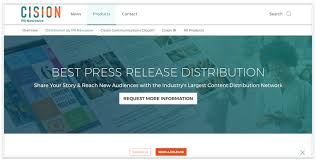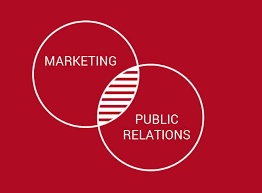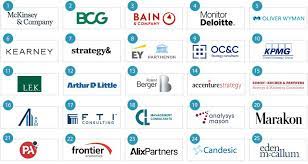Industry-Specific PR Services: Tailored Communication for Success
In today’s competitive business landscape, effective communication is crucial for the success of any organization. Public relations (PR) plays a vital role in building and maintaining a positive brand image, establishing credibility, and connecting with target audiences. While general PR strategies can be effective to some extent, industry-specific PR services offer a tailored approach that maximizes impact and delivers results.
Industry-specific PR services are designed to cater to the unique needs and challenges of specific sectors. Whether it’s technology, healthcare, finance, or any other industry, these specialized services understand the intricacies and dynamics of the sector. Here’s why industry-specific PR services are essential for businesses:
- In-depth Knowledge: Industry-specific PR professionals possess a deep understanding of the specific sector they serve. They stay updated with the latest trends, regulations, and market dynamics affecting the industry. This knowledge allows them to craft targeted messages that resonate with industry stakeholders, including customers, investors, media outlets, and influencers.
- Targeted Media Relations: Effective media relations are at the core of successful PR campaigns. Industry-specific PR services have established relationships with journalists and media outlets relevant to their respective sectors. They know which publications or platforms are influential within the industry and can secure valuable media coverage that reaches the right audience.
- Thought Leadership: Establishing thought leadership is crucial for businesses looking to position themselves as experts in their field. Industry-specific PR services help clients showcase their expertise through strategic content creation, securing speaking opportunities at industry events or conferences, and facilitating expert interviews in relevant media outlets. This helps build credibility and trust among target audiences.
- Crisis Management: Every industry faces its own unique challenges when it comes to crisis management. Industry-specific PR professionals are well-versed in handling crises specific to their sectors. They understand the potential risks involved and can develop proactive crisis communication strategies that protect brand reputation while mitigating negative impacts.
- Regulatory Compliance: Many industries operate within strict regulatory frameworks. Industry-specific PR services have a thorough understanding of these regulations and can ensure that all communication efforts comply with legal requirements. This prevents any potential compliance issues and maintains the integrity of the brand.
- Niche Audience Engagement: Different industries have distinct target audiences with specific interests, needs, and preferences. Industry-specific PR services can tailor messaging, content, and communication channels to effectively engage these niche audiences. This personalized approach helps businesses connect on a deeper level with their target market, driving brand awareness and customer loyalty.
In conclusion, industry-specific PR services offer businesses a tailored approach to communication that maximizes impact and delivers tangible results. By leveraging their in-depth knowledge, targeted media relations, thought leadership strategies, crisis management expertise, regulatory compliance understanding, and niche audience engagement capabilities, these specialized services can help businesses gain a competitive edge within their respective industries.
If you’re looking to enhance your brand’s reputation, establish thought leadership or navigate industry-specific challenges effectively, consider partnering with industry-specific PR professionals who understand your sector inside out. With their expertise and tailored strategies, you can communicate your message effectively and achieve success in your industry.
8 Benefits of Industry-Specific PR Services in the UK
- Increased visibility and brand recognition
- Improved customer relations
- Enhanced credibility
- Increased media coverage
- Strategic partnerships
- Improved search engine rankings
- Social media engagement
- Competitive advantage
7 Drawbacks of Industry-Specific PR Services: A Comprehensive Analysis
- It can be expensive to hire a PR agency that is specialised in the industry.
- The PR agency may not have an in-depth understanding of the industry and its challenges.
- Industry-specific PR services may lack creativity and innovation compared to other agencies with more general expertise.
- Finding a reputable, reliable, and experienced industry-specific PR agency can be difficult and time consuming.
- Industry-specific PR services may focus too much on short-term gains rather than long term strategies for success in the market place
- It can be difficult to measure the success of an industry-specific PR campaign due to its niche nature
- An industry-specific PR strategy may limit your reach outside of that particular sector
Increased visibility and brand recognition
Increased Visibility and Brand Recognition: The Power of Industry-Specific PR Services
In today’s crowded marketplace, standing out from the competition is crucial for businesses to thrive. One significant advantage of industry-specific PR services is their ability to increase visibility and enhance brand recognition. By leveraging their sector-specific expertise, these services can help create a positive public image for your business, ultimately building trust with potential customers.
Industry-specific PR professionals understand the nuances of your industry and the unique challenges you face. They have a deep knowledge of your target audience, competitors, and market trends. This expertise allows them to craft compelling messages that resonate with your specific customer base.
Through strategic media relations, industry-specific PR services can secure valuable coverage in relevant publications and platforms within your industry. This exposure not only increases your business’s visibility but also positions you as a trusted authority in your field. When potential customers consistently see your brand mentioned alongside industry news or featured in thought leadership articles, it builds credibility and reinforces brand recognition.
Furthermore, industry-specific PR services can help you identify key opportunities for engagement within your sector. They can facilitate speaking engagements at industry conferences or arrange interviews with influential media outlets. By positioning you as an expert in your field through these channels, they enhance your brand’s reputation and increase its visibility among key stakeholders.
Another way industry-specific PR services boost visibility is through targeted content creation. They understand the topics that resonate with your audience and can develop informative and engaging content that speaks directly to their interests and pain points. Whether it’s blog posts, whitepapers, or social media campaigns, these services ensure that the content aligns with the unique needs of your target market.
By increasing visibility and brand recognition within your industry, industry-specific PR services help build trust with potential customers. When consumers are familiar with a brand and perceive it positively, they are more likely to choose that brand over others when making purchasing decisions.
In conclusion, partnering with industry-specific PR services can be a game-changer for businesses seeking to enhance their visibility and brand recognition. By leveraging their sector-specific knowledge, strategic media relations, targeted content creation, and thought leadership opportunities, these services can help your business stand out from the competition. Increased visibility not only drives brand recognition but also fosters trust among potential customers, ultimately leading to business growth and success within your industry.
Improved customer relations
Improved Customer Relations: Building Stronger Connections with Tailored PR Services
In today’s competitive business landscape, building strong relationships with customers is key to long-term success. One significant advantage of industry-specific PR services is their ability to improve customer relations by providing tailored content and messaging that resonates with the target audience.
When it comes to effective communication, a one-size-fits-all approach rarely delivers the desired results. Customers in different industries have unique interests, needs, and preferences. Industry-specific PR services understand these nuances and have the expertise to craft messages that speak directly to the target audience.
By tailoring content and messaging, industry-specific PR professionals can create a deeper connection between businesses and their customers. They understand the challenges faced by customers in specific industries and can address those concerns directly through strategic communication.
When customers feel that a brand understands their specific needs and challenges, they are more likely to develop a sense of loyalty. Industry-specific PR services help businesses build trust and credibility among their target audience by providing valuable information, insights, and solutions that are relevant to their industry.
Tailored content also enhances customer engagement. When customers receive information that is specifically crafted for them, they are more likely to pay attention and actively engage with the brand. This can include participating in discussions, sharing content on social media platforms, or providing feedback on products or services.
Furthermore, industry-specific PR services can leverage different communication channels preferred by customers in a particular sector. Whether it’s trade publications, industry forums, or targeted online communities, these professionals know where to reach out to effectively engage with the target audience.
Improved customer relations not only lead to increased loyalty but also generate positive word-of-mouth referrals. Satisfied customers who feel understood are more likely to recommend a brand or its products/services within their industry networks. This organic advocacy can significantly boost brand reputation and attract new customers within the same sector.
In conclusion, one of the notable benefits of industry-specific PR services is the improved customer relations they facilitate. By providing tailored content and messaging that is relevant to the target audience, these services help businesses build stronger connections with customers, increase loyalty, and generate positive word-of-mouth referrals. If you want to enhance your customer relationships within your industry, partnering with industry-specific PR professionals can be a valuable investment in your brand’s success.
Enhanced credibility
Enhanced Credibility: Establishing Thought Leadership with Industry-Specific PR Services
In today’s competitive business landscape, credibility is key. Building trust and demonstrating expertise are essential for attracting potential customers and standing out from the competition. One significant advantage of industry-specific PR services is the ability to enhance credibility by showcasing your company’s thought leadership within your sector.
Industry-specific PR professionals possess a deep understanding of the specific industry they serve. They stay updated with the latest trends, innovations, and challenges that impact the sector. By leveraging their knowledge and expertise, they can position your company as a thought leader in the industry.
Through strategic content creation, industry-specific PR services help you share valuable insights, expert opinions, and industry-related news. This positions your company as a go-to resource for information within your sector. By consistently delivering relevant and authoritative content through various channels such as press releases, articles, blog posts, or social media platforms, you can establish yourself as a trusted voice in the industry.
Being recognized as a thought leader not only boosts your company’s credibility but also increases brand awareness among potential customers. When individuals perceive your business as knowledgeable and experienced within its field, they are more likely to trust your products or services.
Industry-specific PR services also provide opportunities for speaking engagements at industry events or conferences. These platforms allow you to showcase your expertise in front of peers, potential clients, investors, and other stakeholders. By sharing valuable insights and engaging in discussions on relevant topics, you can further solidify your reputation as an industry expert.
Media coverage is another powerful tool that enhances credibility. Industry-specific PR professionals have established relationships with journalists and media outlets relevant to their respective sectors. They know how to pitch stories effectively and secure valuable media coverage that reaches target audiences within the industry. Positive media exposure not only validates your expertise but also helps build trust among potential customers who see your company featured in reputable publications or interviewed by trusted journalists.
By leveraging industry-specific PR services to demonstrate expertise and thought leadership within your sector, you can effectively enhance the credibility of your company. This credibility, in turn, helps attract potential customers who are more likely to trust your brand and choose your products or services over competitors.
Remember, credibility is not built overnight. It requires consistent effort, strategic communication, and a deep understanding of the industry landscape. By partnering with industry-specific PR professionals who can navigate the intricacies of your sector, you can establish yourself as a credible and trusted authority within your industry.
Increased Media Coverage: Amplifying Your Industry Presence
In today’s fast-paced business environment, gaining media coverage is a powerful way to boost brand visibility and establish credibility. One significant advantage of industry-specific PR services is their ability to increase media coverage by leveraging targeted outreach campaigns.
Industry-specific PR professionals have a deep understanding of the media landscape within your sector or field of expertise. They have established relationships with journalists, editors, and influencers who cover news and trends specific to your industry. This enables them to strategically pitch your story or expertise to the right media outlets, increasing the chances of securing valuable press coverage.
By focusing on industry-specific media outlets, these PR services ensure that your brand message reaches the most relevant audience. Whether it’s technology publications, healthcare journals, or financial news platforms, they know which outlets are influential within your industry and can tailor their outreach accordingly.
Traditional media outlets such as newspapers, magazines, and television still hold significant influence. Industry-specific PR services understand how to navigate these channels effectively by crafting compelling press releases, organizing interviews with key stakeholders, and pitching stories that align with current industry trends. This increases the likelihood of securing coverage in respected traditional media sources.
In addition to traditional outlets, digital media plays an increasingly crucial role in today’s communication landscape. Industry-specific PR services recognize the importance of online platforms such as industry blogs, niche websites, and social media communities. They leverage digital channels to amplify your brand message and engage with a wider online audience that is interested in your specific sector.
With their expertise in targeted media outreach campaigns, industry-specific PR services can help you secure valuable press coverage that raises awareness about your brand or positions you as a thought leader within your industry. Increased media coverage not only enhances brand visibility but also builds trust among potential customers who see you featured in reputable publications.
Moreover, increased media coverage can generate positive momentum for your business. As more people become aware of your brand through various media channels, it can lead to new opportunities such as partnership inquiries, speaking engagements, or invitations to industry events. This can further enhance your industry presence and open doors for future growth.
In conclusion, industry-specific PR services offer the advantage of increased media coverage by leveraging targeted outreach campaigns. By tapping into their extensive network of media contacts and understanding the specific needs of your industry, these PR professionals can strategically position your brand in front of the right audience. The result is heightened brand visibility, enhanced credibility, and potential business opportunities that propel your success within your industry.
Strategic partnerships
Strategic Partnerships: Unlocking Growth Potential with Industry-Specific PR Services
In today’s interconnected business landscape, strategic partnerships have become a powerful tool for driving growth and expanding market reach. One significant advantage of industry-specific PR services is their ability to identify and foster strategic partnerships within your sector. These partnerships can provide additional exposure, resources, and opportunities that propel your business forward.
Industry-specific PR professionals possess an in-depth understanding of the sector they serve. They have extensive networks and relationships with key players, including businesses, organizations, influencers, and industry experts. Leveraging these connections, they can identify potential strategic partners who align with your brand values and objectives.
By forging strategic partnerships, businesses can tap into a wealth of benefits:
- Expanded Exposure: Collaborating with established brands or influential industry figures through strategic partnerships exposes your business to new audiences. This increased exposure can generate greater brand awareness and attract new customers or clients who may have otherwise been out of reach.
- Shared Resources: Strategic partnerships often involve pooling resources between two or more entities. This allows businesses to access additional expertise, technology, funding, or distribution channels that may not have been readily available before. By leveraging these shared resources, companies can accelerate growth and achieve their goals more efficiently.
- Enhanced Credibility: Partnering with reputable organizations or industry leaders enhances your brand’s credibility within the sector. It signals to stakeholders that you are trusted by established players in the field, instilling confidence in your products or services. This credibility boost can open doors to new opportunities and strengthen relationships with existing customers.
- Collaborative Marketing Initiatives: Through strategic partnerships, businesses can collaborate on marketing initiatives that amplify their collective impact. Joint campaigns, co-branded content, or shared events allow partners to leverage each other’s audiences and increase engagement levels. This collaborative approach creates a win-win situation by reaching a wider pool of potential customers while maximizing marketing efforts.
- Access to Industry Insights: Strategic partners often bring valuable industry insights and market intelligence to the table. By aligning with organizations or individuals who have a deep understanding of the sector, businesses can gain valuable knowledge and stay ahead of industry trends. This insight can inform strategic decision-making, product development, and overall business strategy.
Industry-specific PR services play a crucial role in identifying these strategic partnership opportunities. Their expertise in the sector enables them to recognize potential synergies and match businesses with partners that complement their goals and aspirations. By acting as facilitators, industry-specific PR professionals help foster collaborations that drive growth and unlock new opportunities for their clients.
In conclusion, strategic partnerships are a valuable asset for businesses seeking to expand their reach, access resources, enhance credibility, and tap into industry insights. With the help of industry-specific PR services, companies can identify and nurture these partnerships within their sector. By leveraging shared expertise and resources through collaborative initiatives, businesses can accelerate growth and achieve long-term success in their respective industries.
Improved search engine rankings
Improved Search Engine Rankings: Boosting Visibility and Driving Organic Traffic
In today’s digital age, having a strong online presence is crucial for the success of any business. One significant advantage of industry-specific PR services is their ability to improve search engine rankings, ultimately driving more organic traffic to your website.
Search Engine Optimization (SEO) is a key component of effective online marketing, and industry-specific PR services understand its importance. By leveraging their expertise in SEO strategies such as keyword research and link building, these services can significantly enhance the visibility of your website on search engines like Google.
Keyword research is a fundamental aspect of SEO. Industry-specific PR professionals conduct thorough research to identify the most relevant keywords and phrases that potential customers are using when searching for products or services related to your industry. By strategically incorporating these keywords into your website’s content, meta tags, and headings, they optimize your site’s relevance and increase its chances of appearing higher in search engine results pages (SERPs).
Link building is another crucial aspect of SEO that industry-specific PR services excel at. They leverage their industry knowledge and connections to secure high-quality backlinks from reputable websites within your sector. These backlinks act as endorsements for your website’s authority and credibility in the eyes of search engines. As a result, search engines reward your site with higher rankings, making it more visible to potential customers searching online.
Improved search engine rankings have numerous benefits for businesses. Firstly, they increase the visibility of your website among potential customers who are actively searching for products or services related to yours. This targeted exposure ensures that you attract relevant traffic with a higher likelihood of conversion.
Secondly, higher rankings establish trust and credibility in the eyes of consumers. When your website appears on the first page of search results, it conveys authority and professionalism within your industry. This positively impacts brand perception and encourages potential customers to choose you over competitors.
Furthermore, improved search engine rankings lead to long-term organic traffic growth. Unlike paid advertising, which requires continuous investment, organic traffic generated through higher search engine rankings is sustainable and cost-effective. By consistently appearing in relevant search results, you can attract a steady stream of potential customers without relying solely on paid advertising.
In conclusion, industry-specific PR services offer the advantage of improved search engine rankings through effective SEO strategies. By conducting comprehensive keyword research and implementing targeted link building techniques, these services enhance the visibility of your website online. As a result, you can drive more organic traffic from potential customers actively searching for products or services related to your industry. With increased visibility, credibility, and sustained organic traffic growth, your business can thrive in the competitive online landscape.
Social Media Engagement: Unlocking the Power of Industry-Specific PR Services
In today’s digital age, social media has become an integral part of our daily lives. It has also emerged as a powerful platform for businesses to connect with their target audience and build brand awareness. When it comes to social media engagement, industry-specific PR services offer a distinct advantage. By tailoring targeted social media campaigns towards specific platforms such as Twitter or LinkedIn, these services can help businesses engage users in conversations related to their industry, ultimately leading to increased brand awareness over time.
One of the key benefits of industry-specific PR services is their ability to understand the nuances and trends within a particular sector. They possess in-depth knowledge about the target audience’s preferences, interests, and behaviours on social media platforms. This expertise allows them to develop tailored strategies that resonate with users and spark meaningful conversations around industry-related topics.
By leveraging industry-specific insights, PR professionals can create compelling content that captures the attention of the target audience. Whether it’s sharing thought leadership articles, participating in relevant discussions, or providing valuable insights on industry trends, these tailored social media campaigns aim to position businesses as trusted voices within their respective sectors.
Engaging users in conversations related to your business not only increases brand visibility but also helps foster a sense of community and trust among your target audience. By actively participating in discussions and addressing queries or concerns raised by users, businesses can establish themselves as approachable and knowledgeable entities within their industry.
Furthermore, targeted social media campaigns designed by industry-specific PR services can lead to an increase in followership over time. As businesses consistently share valuable content and engage with users on these platforms, they attract individuals who are genuinely interested in their industry or offerings. This organic growth in followership ensures that businesses are reaching a relevant audience who are more likely to convert into loyal customers or advocates for the brand.
It is important to note that successful social media engagement requires consistent effort and a well-planned strategy. Industry-specific PR services bring their expertise to the table, helping businesses navigate the ever-changing social media landscape. They stay updated with platform algorithms, trends, and best practices, ensuring that businesses are using social media effectively to engage their target audience.
In conclusion, industry-specific PR services offer a valuable pro when it comes to social media engagement. By tailoring campaigns towards specific platforms and leveraging their deep understanding of the industry, these services can help businesses spark conversations, increase followership, and ultimately enhance brand awareness. So if you’re looking to make a lasting impact on social media within your industry, consider partnering with industry-specific PR professionals who can help you unlock the full potential of this powerful communication tool.
Competitive advantage
Industry-Specific PR Services: Gaining a Competitive Edge
In today’s fast-paced and highly competitive business environment, staying ahead of the curve is essential for success. One significant advantage of industry-specific PR services is their ability to provide businesses with a competitive edge by offering timely analysis and insights. By leveraging the expertise of experienced professionals with specialized knowledge, these services help companies stay ahead of industry trends and outpace their rivals.
The world of business is constantly evolving, and industries are no exception. New technologies, changing consumer preferences, emerging market trends – all these factors shape the landscape in which businesses operate. Industry-specific PR services understand the nuances of their respective sectors and have their fingers on the pulse of the latest developments. Their experienced teams closely monitor industry trends, conduct thorough analysis, and provide valuable insights to their clients.
By partnering with industry-specific PR service providers, businesses gain access to this wealth of knowledge and expertise. This enables them to make informed decisions, anticipate changes in the market, and adapt their strategies accordingly. Whether it’s identifying emerging opportunities or mitigating potential risks, having access to up-to-date insights gives businesses a significant advantage over their competitors.
Furthermore, industry-specific PR services offer a deep understanding of the target audience within a particular sector. They know what motivates consumers in that industry, what influences their purchasing decisions, and how to effectively engage with them. This knowledge allows businesses to tailor their communication strategies specifically for their target audience’s preferences and needs.
A tailored approach ensures that messages resonate with consumers on a deeper level, leading to increased brand awareness and customer loyalty. By leveraging industry-specific PR services’ specialized knowledge about consumer behaviour within a particular sector, businesses can position themselves as leaders in meeting customer demands effectively.
Another aspect where industry-specific PR services provide a competitive advantage is crisis management. Every sector faces its unique challenges when it comes to handling crises effectively. Industry-specific PR professionals understand the intricacies involved and can develop proactive strategies to safeguard a brand’s reputation during challenging times. Their familiarity with industry-specific crises enables them to respond swiftly and effectively, minimizing negative impacts and maintaining consumer trust.
In conclusion, industry-specific PR services offer businesses a competitive edge by providing timely analysis, insights, and specialized knowledge. By staying ahead of trends in the industry through the expertise of experienced professionals, businesses can make informed decisions, tailor their communication strategies to their target audience’s preferences, and effectively navigate crises specific to their sector. This advantage allows companies to outperform their rivals and position themselves as industry leaders.
If you want to gain a competitive edge in your industry and stay ahead of the game, consider partnering with industry-specific PR service providers. Their specialized knowledge and insights will help you make strategic decisions, connect with your target audience effectively, and successfully navigate the ever-changing business landscape.
It can be expensive to hire a PR agency that is specialised in the industry.
The Cost Factor: Considering the Expense of Industry-Specific PR Services
While industry-specific PR services offer a range of benefits, it is important to acknowledge one potential drawback: the cost. Hiring a PR agency that specializes in a particular industry can be more expensive compared to engaging a general PR firm. However, it is crucial to weigh this con against the potential advantages and long-term value that industry-specific expertise can bring.
Here are some factors to consider when evaluating the expense of industry-specific PR services:
- Specialized Knowledge and Experience: Industry-specific PR agencies invest time and resources in acquiring in-depth knowledge and expertise within a specific sector. This specialized knowledge allows them to craft targeted communication strategies that resonate with key stakeholders. While this expertise may come at a higher price, it can lead to more impactful results and better return on investment.
- Targeted Media Relations: Industry-specific PR agencies have established relationships with journalists, influencers, and media outlets within their respective sectors. These connections enable them to secure valuable media coverage that reaches the right audience. The cost of maintaining these relationships and securing targeted media placements contributes to the overall expense of industry-specific PR services.
- Niche Audience Engagement: Engaging with niche audiences requires a tailored approach that understands their specific interests, needs, and preferences. Industry-specific PR agencies invest time in understanding these nuances and developing communication strategies that effectively engage these niche audiences. While this level of personalization may increase costs, it also enhances brand awareness and customer loyalty among the target market.
- Resource Allocation: Specialized PR agencies often allocate dedicated teams or individuals who have extensive knowledge of the industry they serve. These professionals bring valuable insights and perspectives but may come at a higher price due to their specialized skill set.
- Competitive Advantage: While hiring an industry-specific PR agency may be more expensive upfront, it can provide businesses with a competitive advantage over their rivals who opt for generalist firms. The expertise and industry-specific knowledge of the PR agency can help businesses stand out, establish thought leadership, and build a strong reputation within their sector.
To mitigate the cost factor, businesses can explore options such as negotiating pricing structures, seeking customized service packages that align with their budget, or considering a hybrid approach that combines industry-specific PR services with generalist support.
Ultimately, it is essential to evaluate the potential return on investment when considering industry-specific PR services. The expertise, targeted strategies, and specialized knowledge these agencies bring can often outweigh the initial expense. By carefully assessing business goals and the unique advantages that industry-specific PR services offer, companies can make an informed decision regarding their communication needs.
The PR agency may not have an in-depth understanding of the industry and its challenges.
The Potential Pitfall of Industry-Specific PR Services: Lack of In-Depth Understanding
While industry-specific PR services offer numerous benefits, there is a potential con that businesses should be aware of. This drawback revolves around the possibility that a PR agency may not have an in-depth understanding of the industry and its unique challenges.
When engaging an industry-specific PR agency, it is crucial to ensure that they possess the necessary knowledge and expertise to effectively navigate the intricacies of your sector. Here are some key points to consider:
- Limited Industry Insight: If a PR agency lacks experience or exposure in your specific industry, they may struggle to grasp the nuances and complexities that exist within it. This could result in generic messaging or strategies that fail to resonate with your target audience or address the specific challenges you face.
- Missed Opportunities: Without a deep understanding of your industry, a PR agency may overlook valuable opportunities for media coverage or thought leadership positioning. They might not be aware of key publications, influential journalists, or relevant industry events that could significantly impact your brand’s visibility and reputation.
- Ineffective Communication: Communication is at the heart of public relations. If a PR agency does not possess comprehensive knowledge of your industry, they may struggle to accurately convey complex concepts or technical information to your target audience. This can lead to misinterpretation, confusion, or missed connections with stakeholders who require specific expertise.
- Limited Network: Building strong relationships with media professionals and influencers is crucial for successful PR campaigns. However, an agency lacking industry-specific experience may have limited connections within your sector’s media landscape. This can hinder their ability to secure meaningful coverage or engage with influential individuals who can amplify your brand’s message.
To mitigate this con effectively, businesses should thoroughly evaluate potential PR agencies before partnering with them:
a) Research their track record: Look for evidence of successful campaigns within your industry and assess their impact on clients’ reputations and goals.
b) Request case studies: Ask for examples of their work with similar businesses in your sector. This will provide insight into their approach and the results they have achieved.
c) Assess their knowledge: During initial consultations, test the agency’s understanding of your industry by asking relevant questions. Their responses should demonstrate a comprehensive grasp of the challenges, trends, and key players within your sector.
d) Seek referrals: Reach out to other businesses in your industry who have worked with the PR agency you are considering. Their feedback can offer valuable insights into the agency’s ability to navigate industry-specific challenges.
By conducting thorough due diligence, businesses can minimize the risk of partnering with a PR agency that lacks an in-depth understanding of their industry. Remember, effective communication requires not only general PR expertise but also a keen awareness of the unique dynamics and intricacies within your specific sector.
Industry-specific PR services may lack creativity and innovation compared to other agencies with more general expertise.
Industry-Specific PR Services: Balancing Specialization and Creativity
While industry-specific PR services offer numerous benefits, it’s important to acknowledge that they may face a potential drawback when it comes to creativity and innovation. Compared to agencies with more general expertise, industry-specific PR services might be perceived as lacking the same level of outside-the-box thinking and fresh perspectives. However, it’s essential to consider this con within a broader context.
One of the primary reasons for this perceived lack of creativity is the deep specialization that industry-specific PR services possess. Their focus on a particular sector means they have extensive knowledge and experience within that industry. This specialization allows them to understand the nuances, challenges, and trends specific to their clients’ industries. They can craft targeted messaging and navigate complex issues effectively.
However, this specialization can sometimes lead to a certain level of familiarity and reliance on tried-and-tested strategies. Industry-specific PR professionals may be more inclined to rely on traditional approaches that have proven successful in their sector rather than exploring unconventional methods.
To overcome this con, industry-specific PR services should actively seek ways to infuse creativity and innovation into their strategies. By continuously staying abreast of emerging trends in communication, technology, and consumer behaviour across various industries, they can bring fresh ideas into their specialized approach.
Collaboration with professionals from diverse backgrounds can also help mitigate this potential drawback. By engaging with individuals outside their specific sector, such as creative directors or consultants from other industries, industry-specific PR services can tap into different perspectives and leverage cross-industry insights for more innovative campaigns.
Furthermore, industry-specific PR agencies should foster a culture of curiosity and encourage their team members to think beyond the boundaries of their niche. Encouraging brainstorming sessions, attending conferences or workshops outside their sector, and embracing experimentation can all contribute to injecting creativity into their specialized approach.
Ultimately, striking a balance between specialization and creativity is crucial for industry-specific PR services. While their deep knowledge and understanding of a particular industry are invaluable, it’s important to supplement it with fresh ideas and innovative thinking. By embracing creativity and actively seeking new approaches, industry-specific PR services can ensure that their clients receive the best of both worlds – targeted expertise and innovative strategies that drive success in their respective industries.
Finding a reputable, reliable, and experienced industry-specific PR agency can be difficult and time consuming.
Finding a reputable, reliable, and experienced industry-specific PR agency can be a daunting task that requires careful consideration and research. While industry-specific PR services offer numerous benefits, it is important to acknowledge the potential challenge of finding the right agency that meets your specific needs.
One of the main drawbacks of industry-specific PR services is the time and effort it takes to identify a trustworthy agency. It can be difficult to navigate through the sea of PR firms claiming expertise in your industry. The process of evaluating their reputation, reliability, and experience requires thorough investigation, including reviewing their portfolio, client testimonials, case studies, and success stories.
Furthermore, due to the specialized nature of industry-specific PR services, there may be a limited number of agencies with extensive experience in your particular sector. This scarcity can make it even more challenging to find an agency that truly understands your industry’s nuances and has a proven track record of delivering results.
The search for an industry-specific PR agency often involves multiple consultations and meetings to assess their capabilities, strategies, and compatibility with your business goals. This process can be time-consuming as you strive to find an agency that aligns with your values, communication style, and long-term objectives.
However, despite these challenges, it is crucial not to compromise on quality when selecting an industry-specific PR agency. A reputable agency with deep knowledge and experience in your sector can provide invaluable insights, connections within the industry’s media landscape, and tailored strategies that yield better outcomes for your brand.
To mitigate these difficulties in finding a reliable agency for industry-specific PR services, consider seeking recommendations from trusted colleagues or partners within your industry network. Their insights can help narrow down potential agencies worth exploring further.
Additionally, conducting thorough research on shortlisted agencies will provide you with valuable information about their expertise and reputation. Look for case studies or success stories related to businesses similar to yours within their portfolio. This will give you an idea of their ability to deliver results in your industry.
In conclusion, while finding a reputable, reliable, and experienced industry-specific PR agency may require time and effort, it is an essential step towards achieving effective communication within your sector. By conducting thorough research, seeking recommendations, and evaluating agencies based on their track record and expertise, you can increase the likelihood of finding the right partner that will help amplify your brand’s presence and success within your industry.
Industry-specific PR services may focus too much on short-term gains rather than long term strategies for success in the market place
Industry-specific PR services have their advantages, but it’s important to acknowledge that they may sometimes focus too heavily on short-term gains rather than long-term strategies for success in the marketplace. While industry-specific PR professionals possess deep knowledge and expertise in their respective sectors, they may become overly fixated on immediate results, potentially neglecting the bigger picture.
One of the potential downsides of this short-term mindset is that it can lead to a lack of strategic planning and foresight. Instead of developing comprehensive long-term communication strategies that align with the company’s overall goals and vision, industry-specific PR services might prioritize quick wins and immediate outcomes. This approach can hinder the establishment of a strong and enduring brand presence.
Another consequence of this short-term focus is the potential neglect of building sustainable relationships with stakeholders. While securing media coverage or generating buzz around a specific event or product launch can be beneficial in the short run, it is equally important to cultivate lasting connections with key influencers, journalists, customers, and other industry players. Neglecting these relationships for short-term gains may result in missed opportunities for long-term growth and reputation building.
Furthermore, an excessive emphasis on short-term results can hinder innovation and adaptability. Industries are constantly evolving, with emerging trends and technologies shaping the landscape. By solely concentrating on immediate objectives without considering future market shifts, industry-specific PR services might miss out on opportunities to position their clients as forward-thinking leaders within their sectors.
To mitigate this con, businesses should seek a balanced approach when engaging industry-specific PR services. It’s essential to communicate long-term goals clearly from the outset and encourage strategic thinking beyond immediate outcomes. By fostering open dialogue and collaboration with PR professionals who understand both short- and long-term perspectives, businesses can ensure that their communication efforts align with broader objectives while capitalizing on sector-specific expertise.
In conclusion, while industry-specific PR services bring valuable sector knowledge and targeted approaches to communication, there is a potential risk of excessive focus on short-term gains. Businesses should actively engage in strategic discussions with PR professionals to strike the right balance between immediate results and long-term success. By doing so, they can maximize the benefits of industry-specific PR services while maintaining a broader perspective on their overall communication strategies in the marketplace.
It can be difficult to measure the success of an industry-specific PR campaign due to its niche nature
Challenges in Measuring Success: Niche Nature of Industry-Specific PR Campaigns
Industry-specific PR services offer numerous benefits, but like any approach, they also come with their own set of challenges. One significant hurdle faced by industry-specific PR campaigns is the difficulty in measuring their success due to their niche nature.
Unlike broader PR campaigns that target a wide audience or multiple industries, industry-specific PR campaigns focus on a narrow segment of the market. This niche approach can make it challenging to quantify the impact and measure the effectiveness of these campaigns. Here’s why:
Limited Metrics: Industry-specific PR campaigns often face limitations when it comes to available metrics for evaluation. Traditional metrics like media coverage or social media engagement may not provide a comprehensive picture of success within a specific industry. The lack of standardized benchmarks or industry-specific measurement tools can make it difficult to gauge the campaign’s overall impact accurately.
Narrow Target Audience: Niche industries often have smaller target audiences compared to broader sectors. This limited reach can make it harder to gather sufficient data for analysis and measurement purposes. With fewer potential customers or stakeholders, tracking and quantifying the campaign’s influence becomes more challenging.
Longer Sales Cycles: In some industries, sales cycles are longer due to complex decision-making processes or high-value transactions. It can take months or even years before the impact of an industry-specific PR campaign translates into tangible business outcomes such as increased sales or market share. As a result, measuring immediate results becomes more elusive and requires long-term tracking and analysis.
Industry-Specific Goals: Each industry has its own unique goals and objectives when it comes to PR efforts. These goals may not always align with conventional metrics used in broader PR campaigns. For example, an industry-specific campaign might prioritize building relationships with key stakeholders or positioning the company as an expert rather than solely focusing on generating media coverage or website traffic. These non-traditional goals can complicate measurement efforts.
Subjectivity and Qualitative Impact: Industry-specific PR campaigns often aim to influence perceptions, enhance reputation, or shape industry narratives. These objectives are subjective and qualitative in nature, making them harder to quantify compared to more tangible metrics like sales or website conversions. Measuring the impact of these intangible goals requires a more nuanced approach that goes beyond traditional quantitative measurements.
Despite these challenges, it’s important to note that measuring the success of industry-specific PR campaigns is not impossible. By adopting a tailored approach to measurement and focusing on industry-specific goals, businesses can still gain valuable insights into the effectiveness of their campaigns. Utilizing qualitative research methods such as surveys, interviews, or focus groups can provide valuable feedback from industry stakeholders.
In conclusion, while measuring the success of industry-specific PR campaigns may present challenges due to their niche nature, it is not an insurmountable obstacle. By adapting measurement strategies to align with industry-specific goals and leveraging qualitative research methods, businesses can gain a deeper understanding of the impact and effectiveness of their niche PR efforts.
An industry-specific PR strategy may limit your reach outside of that particular sector
While industry-specific PR services offer numerous benefits, it’s important to consider the potential drawbacks as well. One significant con of an industry-specific PR strategy is that it may limit your reach outside of that particular sector.
When businesses focus solely on industry-specific PR, there is a risk of missing out on opportunities to connect with audiences beyond their niche market. By narrowing the scope of communication efforts to a specific sector, companies may inadvertently exclude potential customers, partners, or investors from other industries who could have shown interest in their products or services.
Furthermore, industry-specific PR strategies may result in a lack of diversification in media coverage. While securing media placements within the targeted sector is essential, it’s equally important to have a presence in broader publications and platforms that reach a wider audience. By neglecting this aspect, businesses may miss out on valuable opportunities for brand exposure and growth.
Another challenge arises when industries overlap or collaborate. In such cases, an exclusively industry-focused PR approach may fail to capture the synergies and potential cross-industry partnerships that could be beneficial for business growth. By limiting outreach efforts to just one sector, businesses might overlook opportunities for collaboration and expansion into related fields.
To mitigate this limitation, businesses can consider adopting a hybrid approach that combines both industry-specific PR strategies and broader outreach efforts. This way, they can maintain a strong presence within their target sector while also expanding their reach beyond its boundaries.
By incorporating elements of general PR tactics alongside industry-specific strategies, businesses can ensure they are capturing the attention of diverse audiences. This approach allows them to leverage the advantages of tailored communication while also exploring new markets and forging connections with stakeholders from different sectors.
In conclusion, while industry-specific PR services offer many advantages, one must be mindful of the potential limitation they pose in terms of reaching audiences outside of the targeted sector. A balanced approach that combines both industry-specific and broader PR strategies can help businesses achieve a wider reach, foster collaborations, and tap into new opportunities for growth. By carefully considering the pros and cons, businesses can develop a comprehensive PR strategy that maximizes their impact and delivers results across multiple sectors.











